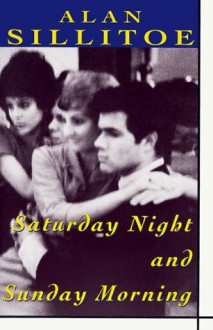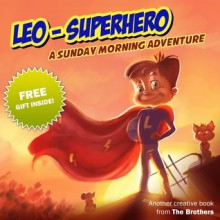 Cliffhanger ending! But I'm pretty sure there's a Book 8 coming. Just have to wait a year for it :-(
Cliffhanger ending! But I'm pretty sure there's a Book 8 coming. Just have to wait a year for it :-(

 Cliffhanger ending! But I'm pretty sure there's a Book 8 coming. Just have to wait a year for it :-(
Cliffhanger ending! But I'm pretty sure there's a Book 8 coming. Just have to wait a year for it :-(

Modern readers may probably readily associate Alan Sillitoe’s 1958 novel with the 1960 film starring Albert Finney. Interestingly, both novel and film are notable contributions to British literature and film. Saturday Night and Sunday Morning is categorized as being part of the Angry Young Men movement of the 1950s-early 1960s; the movement which also spilled into filmmaking with the British New Wave—those black and white “mod” films filled with real locations and real people, in essence challenging how traditional studio films were made. Sillitoe’s novel also plays with tradition, challenging social conventions—the idea of settling down through marriage, the dedicated respect felt towards one’s work, duties and obligations—in favor of a carefree, unattached lifestyle.
Open Road Media’s edition of the novel ends with an Afterword by Sillitoe’s wife, who states that her husband did not care for the”angry young men” label to his novel. By taking the literal meaning of the phrase, Sillitoe’s reluctance for the label is understandable. The novel’s main character, Arthur, is the antithesis of someone who is driven by anger. Arthur embodies a kind of naive, childlike innocence. He is someone who is immediately drawn to any experience that would maximize his pleasure and happiness. He enjoys fun and play, and it’s through this enjoyment that he’s willing to test boundaries to see how far he can go without exacting any negative consequences back onto himself.
There is no formally expressed anger towards the established order. Any anger incurred is the result of having been caught or “burned” from his various tests; and even then, these moments are fleeting, easily pushed aside in favor of a new challenge that would reap a more beneficial reward.
This is a highly fun and amusing read. Sillitoe was clever in this method of storytelling, since it sets up the reader to easily forgive the main character’s many foibles and predilections for trouble. Part of Arthur’s charm stems from his audacious, unapologetic behavior. It’s frankly amazing how he gets away with the things he does. It is likewise astonishing to see how readily he rights himself once he faces a fall from grace.
The novel’s lighthearted tone also allows Sillitoe to address some weighty and potentially controversial subjects from abortion to unsanctioned leaves from military service. Sillitoe masterfully navigates his way through these subjects, careful not to portray them in a way that would immediately condone the offense. Punishments are served, though they are cleverly presented in a way that does arguably play with convention. Also remember, Arthur is largely unchastened throughout the novel.
Saturday Night and Sunday Morning is a novel that should not be missed. As a side note, the film adaptation perfectly complements the novel, since the screenplay was adapted by Sillitoe himself. Albert Finney’s portrayal of Arthur wonderfully suits the character; it’s a great pairing.
Copy provided by NetGalley
 This is about a girl that moves often because of the dad job. She doe not like having to move from one city to the next and leaving her friend and missing school, just after getting settled in a city.
This diary starts out in Washington DC, it set in Washington DC until they move to Hawaii. The rest of the book is about her getting use to Oahu, Hawaii her new home. In the book she experiences the attack on Pearl Harbor. Her brother Andy and Amber see Japanese Plane flying over Early Sunday Morning. Amber does make a friend name Kame.
The book tell you about the history of the Attack on Pearl Harbor though the young girl in the story. This is another book in the series of Dear America. It based on the real thing. If you enjoy History, this is good book along with it good for young reader and Children.
This is about a girl that moves often because of the dad job. She doe not like having to move from one city to the next and leaving her friend and missing school, just after getting settled in a city.
This diary starts out in Washington DC, it set in Washington DC until they move to Hawaii. The rest of the book is about her getting use to Oahu, Hawaii her new home. In the book she experiences the attack on Pearl Harbor. Her brother Andy and Amber see Japanese Plane flying over Early Sunday Morning. Amber does make a friend name Kame.
The book tell you about the history of the Attack on Pearl Harbor though the young girl in the story. This is another book in the series of Dear America. It based on the real thing. If you enjoy History, this is good book along with it good for young reader and Children.
 Sophia and Max short from the September 2013 Newsletter.
Sophia and Max short from the September 2013 Newsletter. 

 Leo SuperHero - A Sunday Morning Adventure by The Brothers
Leo SuperHero - A Sunday Morning Adventure by The Brothers